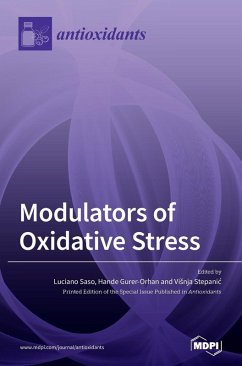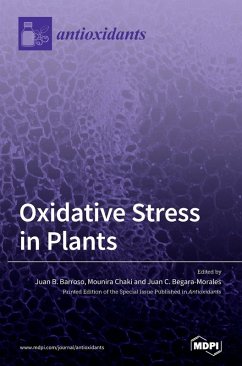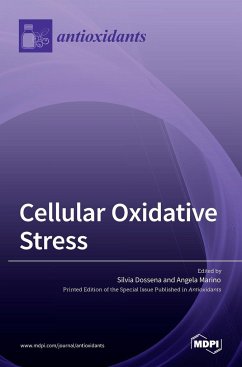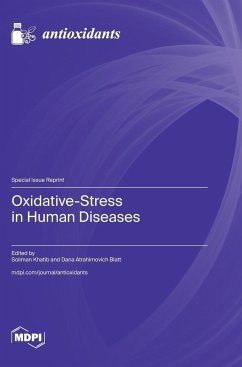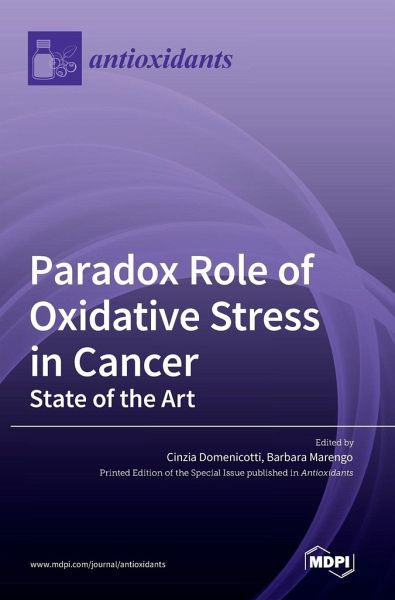
Paradox Role of Oxidative Stress in Cancer
Versandkostenfrei!
Versandfertig in 1-2 Wochen
74,99 €
inkl. MwSt.

PAYBACK Punkte
37 °P sammeln!
Reactive oxygen species (ROS) are produced by healthy cells and are maintained at physiological levels by antioxidant systems. However, when ROS increase in number, a condition of oxidative stress occurs, leading to many human diseases, including cancer. The relationship between oxidative stress and cancer is complex since ROS play a double-edged role in cancer development and under therapy response. This paradox represents a great challenge for researchers and needs to be investigated. The articles collected in this Special Issue can help to clarify the role of ROS modulation in cancer preven...
Reactive oxygen species (ROS) are produced by healthy cells and are maintained at physiological levels by antioxidant systems. However, when ROS increase in number, a condition of oxidative stress occurs, leading to many human diseases, including cancer. The relationship between oxidative stress and cancer is complex since ROS play a double-edged role in cancer development and under therapy response. This paradox represents a great challenge for researchers and needs to be investigated. The articles collected in this Special Issue can help to clarify the role of ROS modulation in cancer prevention and treatment, and to dissect the molecular mechanisms underlying its paradoxical role in order to counteract carcinogenesis or enhance sensitivity to anticancer therapy.



